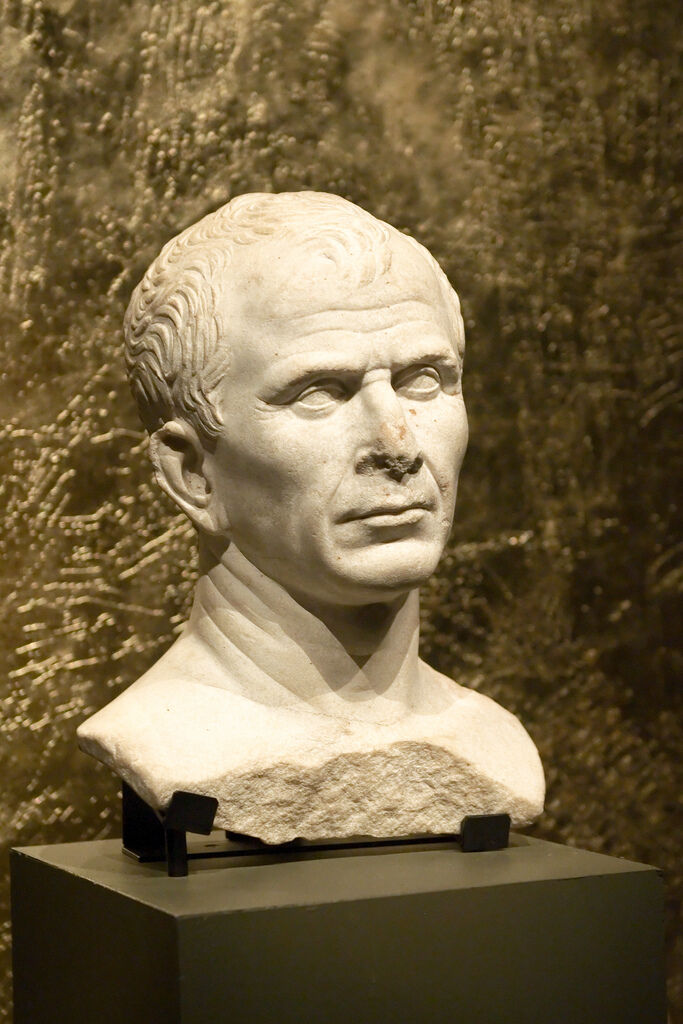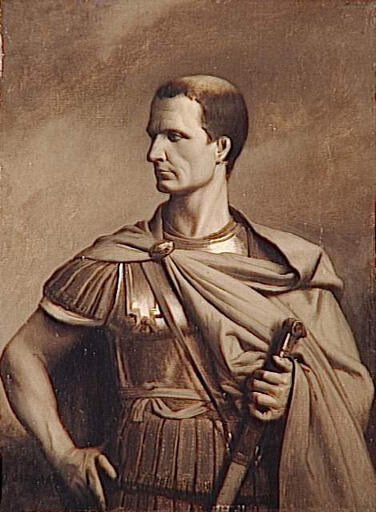Julius Caesar was a Roman politician, soldier and lawyer. Considered a skilful strategist and tactician, he considerably expanded Roman territory, including the conquest of Gaul.
Meanwhile, the population of some Roman provinces was in revolt. Caesar went to the provinces to put an end to the civil war. Back in Rome, a victorious Caesar proclaimed himself dictator for life. Shortly afterwards, he was assassinated by members of the Senate, including his mistress's son, Brutus, who delivered the final blow. Seventeen years later, the Roman Republic disappeared to make way for the Roman Empire. Octavian, his adopted son, became the first emperor and divinized Julius Caesar.
In the Middle Ages, he was considered one of the world's nine great historical figures (Nine Worthies). While the spectacular games he commissioned, and sometimes even organized, contributed greatly to his fame, Julius Caesar is best known for his many territorial conquests and reforms. Subsequent Roman emperors took the name of Caesar on an honorary basis.


-
100 BC: Julius Caesar is born in Rome on July 12 or 13.
-
67 BC: He is appointed senator.
-
63 BC: Caesar is elected pontifex maximus, i.e. great pontiff of the Roman religion.
-
59 BC: Caesar is elected consul, or warlord. After some time, his colleague Marcus Calpurnius Bibulus abdicates his role, leaving the field free for Caesar.
-
58 BC: Julius Caesar leads the Gallic War. In four years, the Romans win some thirty battles, kill a million people and enslave a million. Caesar returns to Rome a great victor. .
-
49 BC: Civil war breaks out in the Roman Republic. Caesar succeeds in reunifying the republic. While in Egypt, he meets the famous Cleopatra VII, with whom he begins a love affair.
-
49 BC: Due to his frequent travels throughout Roman territory, Caesar ordered a coin workshop to follow him wherever he went. This way, wherever he was, he could meet his financial needs and maintain his legions. Also, for the first time, the ruler's portrait appeared on coins, contributing to his propaganda.
-
45 BC: Having pacified the Roman Republic, Caesar is appointed dictator for ten years. He reorganized the Senate, consuls and certain magistrates. He also reorganized the calendar and pardoned several of his friends. The senators, including Cicero, awarded him the titles of Liberator and Imperator to honor him. They also granted him the right to wear a laurel wreath and purple robe, symbols of triumph.
-
44 BC: Caesar becomes dictator for life on February 14. His power knew no bounds.
-
44 BC: Julius Caesar is assassinated in Rome on March 15.